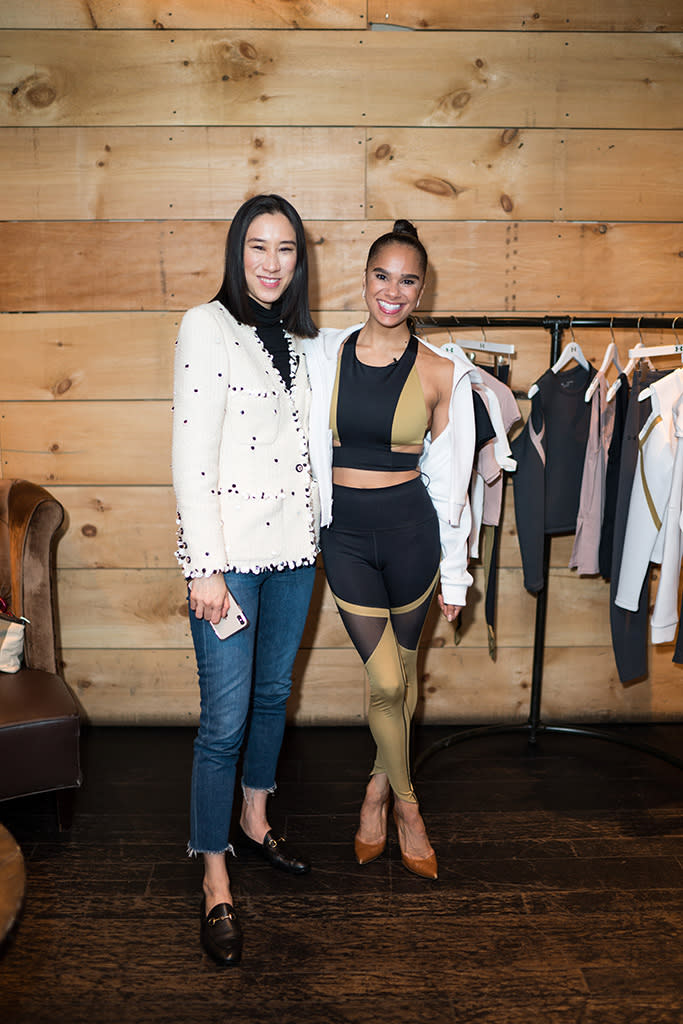Misty Copeland Reacts to Fashion’s Blackface Problem & How the Industry Can Be More Diverse

In addition to criticisms on fashion’s lack of diversity, more issues are being flagged surrounding ignorance and racial insensitivity in the business. This month in particular, the fashion industry has come under fire for its blackface problem.
A number of brands, including Gucci and Katy Perry, have received backlash for creating product that sparked major controversy. (Katy Perry has since reportedly pulled several shoes from her line out of concern that they resembled blackface, while Gucci has apologized and discontinued its $890 sweater for the same reason.)
Related stories
Many celebrities have voiced their opinions on the matter, from Nick Cannon to Dapper Dan. For Misty Copeland, the first black female principal dancer for American Ballet Theatre, this issue hits close to home.
“That is something I’ve constantly dealt with my entire career and in ballet, period. That’s literally still an issue,” she said at an event with Under Armour on Monday. “I understand why there’s an uproar. Raven Wilkinson [one of the first African-American dancers to perform with a major ballet company, the Ballet Russe de Monte Carlo] was told to paint her skin white. I was told at one point to lighten my skin. That’s still going on today.”
The solution? Copeland said it’s all about education. “It’s about owning, accepting and recognizing the history and teaching people why that’s not OK. They need to really understand why it’s wrong, and how it makes us feel, in a deep, conscious way.”
Under Armour hosted an intimate breakfast on Monday, hosted by social media influencer and the director of fashion partnerships at Instagram, Eva Chen, to celebrate the launch of Copeland’s third collection with the brand. Consisting of 13 pieces, the line reflects seamlessness, comfort and versatility. Copeland has been an ambassador for the brand since 2014, using her voice as an advocate for gender and racial equality, which is something she says will never stop fighting for.

On the lack of diversity in fashion, the athlete told FN, “It really stems from the top. That’s what I will say. It’s similar in the ballet world. Until you get people with a different mindset who didn’t grow up in that time where ‘that’s just how things were,’ then true change will not happen. Until you have people who aren’t just doing it for reasons like, ‘Oh, it will look good if I have just one black person,’ then that’s how you get to the root of any problem. Go to the source.”
Copeland — and fellow UA athlete Stephen Curry — was notably vocal in 2017 when CEO Kevin Plank made headlines for referring to President Donald Trump as an asset to the country. In the two years since, Plank has continued to face scrutiny around his management styles as well as a what some analysts have perceived to be a high level of turnover at the brand. The CEO has also shouldered accusations that the brand hasn’t always treated minorities — women and people of color in particular — fairly at the brand. In an exclusive interview with FN last month, Plank denied the allegations.
Chen also spoke on the issue of tokenism during the event.
She said, “One black model on the runway is not enough, or one Asian girl or one Latina girl. I think it does start from the top, but it also starts from the masses and the people. From my Instagram perspective, there’s 1 billion people using [the platform], and so much of what’s important on Instagram is feeling like you are seen.”
Chen stressed the importance of seeing models such as Ashley Graham and Paloma Elsesser. “In this day and age, when you have a [fashion] show with one type of girl, you will hear about it. For everyone, whatever generation you are, using your voice for good is important.”
And in nearing the end of Black History Month, Copeland was reflective on the past. She made sure to point out significant figures in dance, such as Wilkinson and Arthur Mitchell, who have paved the way for her.
Copeland said, “This month means everything to me to have a moment to celebrate all of these people who have impacted me. I would not be here today in this position, to have the confidence and strength to persevere, without the support of black men and women that have inspired me in someway.”
Get more from FootwearNews.com: Follow us on Twitter, Facebook, Instagram

